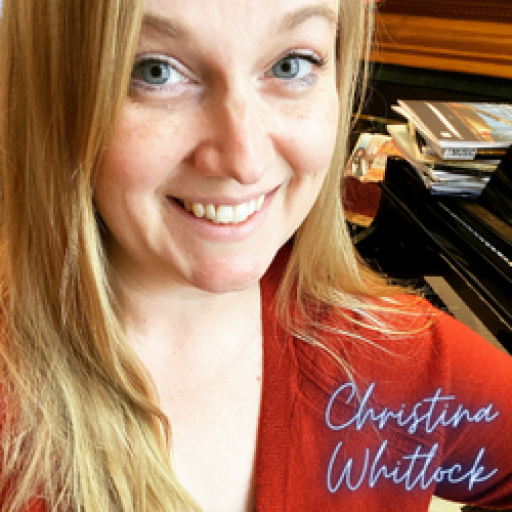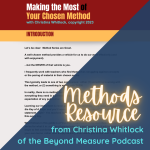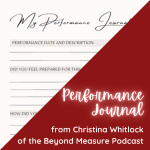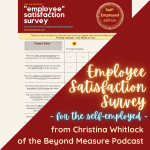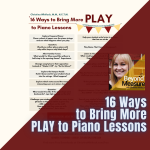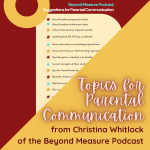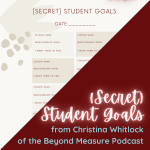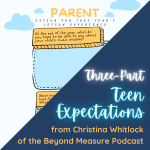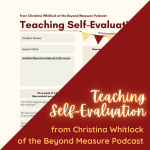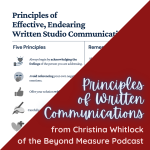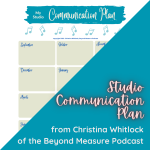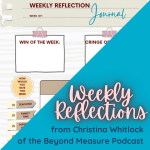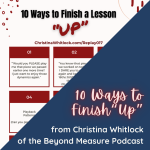The Number One Question for Bored Piano Teachers

The best thing about being a piano teacher can also be the worst thing about being a piano teacher:
No one tells us what to do.
For better and for worse, most of us begin our teaching careers modeling our own musical upbringings. We “should” all over ourselves (thanks for that phrase, Leila Viss), and try to recreate the experiences we had, as we remember them.
Of course, some teachers are saltier and take the opposite approach; rebelling against any and all traditions they can recall.
In most cases, the longer we teach, the more our eyes are opened to the world of possibilities in this profession of ours.
There is no shortage of degree programs and online offerings at every price point to help teach us “old dogs” new tricks, but – even then – our own personal biases and experiences are still at play. We have algorithms and opinions that tend to limit the variety of content that we consider.
I’ve been hosting the Beyond Measure Podcast – a weekly shoutout of solidarity for studio music teachers – since October of 2020. Since launching that show and burrowing my way into the lives of so many new Teacher Friends, I have come to understand several commonalities amongst “bored” piano teachers.
Here’s the thing: We can’t have “mountaintop experiences” every day. Some days are going to feel “meh”. It’s inevitable.
But if you find yourself perpetually uninspired, I have a question for you:
What Are You Teaching?
Your answers to this question are more complex than it sounds. When I ask, “What are you teaching?” what I really mean is, “What is Your Objective”?
Student to student, moment by moment, we must ask ourselves what we are working towards.
- Are you working on a specific concept?
- Are you cleaning a piece of repertoire for a distinct purpose?
- Are you working for confidence? For emotional connection between student and music? For discipline? For technical fluency?
….this list of questions can go on for days, and I can already hear some of you saying, “We’re working for ALL OF THAT”.
And while it’s true those are ALL important aspects of what we do, it’s also true we cannot do all of them at once.
For example: since the piano repertoire is brilliantly-endless, we can drill the same concept across multiple pieces. Controversial as it may be, I do not believe students need to clean every piece to mastery.
We all have students who occasionally practice a passage with an incorrect rhythm. If correcting that rhythm proves to be a struggle, we must ask ourselves: is the problem with the rhythmic concept itself, or with habits the student has built specific to that particular piece? Furthermore: is this a rhythmic pattern we can continue exploring in other compositions, or is this a piece we MUST conquer?
Suffice to say: There are very few reasons an elementary student should ever suffer through weeks and weeks on the same piece, unless they are scheduled to perform it somewhere. If something feels stale, identify the difficulty, and find them some new repertoire to continue working on the concept.
What if you decide your primary objective is to build a student’s confidence at the instrument? If this is priority no. 1, it may be time to work laterally for awhile. As in, make use of the wealth of supplemental literature we have to choose from and let your student complete multiple smaller pieces of repertoire.
Learning an instrument is not like climbing a staircase, ever upward, one concept at a time. Lateral work is often necessary to allow ideas to sink in and become part of the musicians we are nurturing.
With all that said, please know naming your objective – something I talked about in Episode 045 – is absolutely one of the best things you can do
The next time you feel caught in the life-draining cycle of “Assign-Practice-Pass-Repeat” (more on THAT here), try asking yourself, “What EXACTLY am I teaching in this moment?”. The answer may lead you down the path of a much-needed refresh.
And – just in case you find yourself feeling “stuck” on the merry-go-round of Method Books – knowing there has to be more to teaching than moving students through books of various colors, but feeling overwhelmed at the prospect of doing anything differently, I have your back.
My Starter Guide to Making the Most of Your Chosen Method helps teachers (just like you!) put your unique TeacherMagic to work, in conjunction with the method series of your choice. Methods are great; there’s no need to reinvent the wheel here… but there is a better way to use them than turning-the-page-and-seeing-what’s-next.
Even better? My Starter Guide is currently only $29. Check it out here, and don’t be afraid to contact me with any questions.

